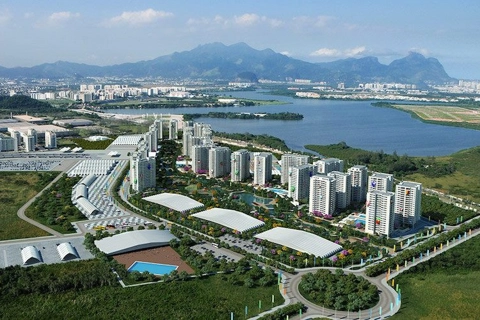Hanoi tightens management of public assets
By 2022-2025, Hanoi aims to have a fully updated and accurate centralized database of all public assets in the city.
Hanoi has approved a plan for the effective management of the city's public assets for the period 2022-2025, with a vision of 2030.
| Hanoi's Tay Ho District from above. Photo: Pham Hung/The Hanoi Times |
According to Nguyen Xuan Luu, Director of the Department of Finance, the project aims to improve the system of mechanisms and policies for managing and using public assets to meet development needs in the current context.
"It also aims to prevent and combat corruption, promote savings, reduce waste, and avoid inefficiencies and violations in the management and use of public assets," Lưu said.
He said the management and use of public property in the city must be carried out in accordance with regulations, with the state assigning management rights, use rights, and other forms of authorization to relevant agencies, organizations, and other entities.
"Transparency and openness are crucial in the management and use of public assets according to market mechanisms," Luu said, adding that effective supervision, inspection, examination, and audit are needed to ensure that irregularities are promptly dealt with and strictly punished according to the law.
By 2022-2025, Hanoi aims to have a centralized, accurate, and fully updated database of all public assets in the city, and all specialized properties in the city should meet the norms and standards approved by the relevant authorities.
To achieve this goal, Hanoi will take decisive action to resolve any malpractices or problems related to the management and use of its state housing fund, whose management and use are entrusted to various agencies, units, and enterprises by central and local government regulations.
Furthermore, the city would immediately cease any unauthorized use of the public property for leasing, lending, joint ventures, or associations, and ensure that all public property used for business purposes, leasing, joint ventures, or associations are approved by the relevant competent authorities.
In accordance with government regulations, the agencies responsible for managing the city's infrastructure assets should complete the review and classification of all existing infrastructure assets and ensure that they are managed and utilized according to the prescribed guidelines. In addition, the city should explore plans to utilize the land on both sides of Ring Road 4 to generate revenue for the development of its transport infrastructure.









